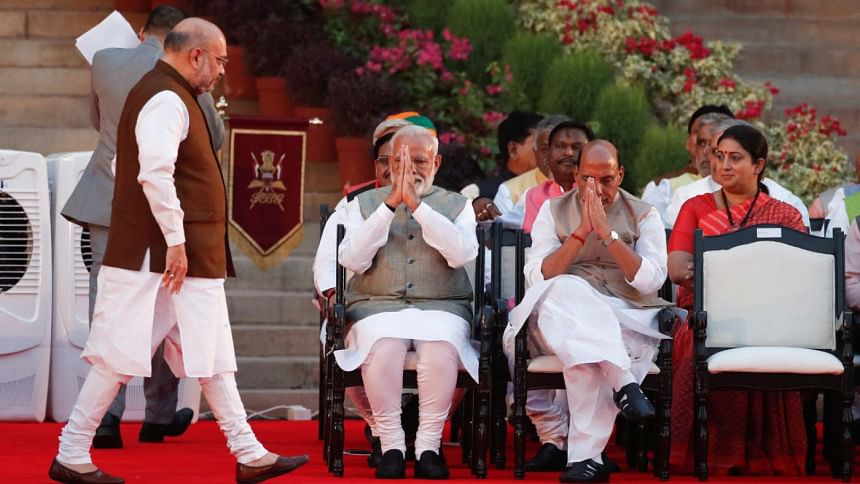Modi to face foreign pressures

Indian Prime Minister Narendra Modi won a second term in office after responding to a suicide attack on Indian paramilitary forces in troubled Kashmir with an airstrike inside Pakistan, allowing him to turn voters' attention away from the country's highest unemployment rate in decades.
Now, after his swearing-in on Thursday, he will need to deftly navigate a trade war between the United States and China as well as rising tensions between the U.S. and Iran, an important source of cheap oil for India's fast-growing economy. Modi will also face pressure to protect India's traditional sphere of influence in South Asia.
Lalit Mansingh, a former Indian ambassador to Washington, said foreign policy has been one of Modi's most pronounced achievements, as he pursued it with vigor "that we have not seen in any other prime minister so far."
As Modi returns to power for another five years, global leaders are looking to India to take on a larger burden of responsibility in the world, acting as a security buffer in the Indo-Pacific, opening its markets and responding to climate change, even though Modi struggled to manage many of India's domestic issues in his first term.
"Maneuvering in the current international situation will be quite a challenge for Modi," said Dilip Sinha, a retired Indian diplomat.
The US wants India to act as a counterweight to Beijing to prevent the rise of Chinese hegemony in Asia but it also wants the Modi administration to lower barriers to trade.
At the same time, with the Trump administration scaling up sanctions on Iran and ending waivers for countries that import Iranian goods, including India, India must replace its third-largest source of imported oil.
The fear of a further conflagration in the Persian Gulf region could make oil more expensive and threatens the security of 7 million Indians working as migrant laborers. "It's an extremely difficult and challenging position for India," Sinha said.
During the Cold War, India didn't have open relations with Israel, leaning heavily in favor of the Palestinians. But over the last 25 years, ties between the two countries have warmed. Trade between them has skyrocketed from $200 million in 1992, when India and Israel established diplomatic ties, to $4.16 billion in 2016. The growing ties risk upsetting India's long-standing relationship with other Middle Eastern countries.
The US weapons purchase agreements, coupled with Russia's improving ties with Pakistan and China, also pose a challenge to Russia-India relations, which date back to the Cold War.
"India's Russian ties are also beginning to fray. The recent fighter aircraft deals with France and other military hardware purchases from the USA have resulted in sidelining India's usual defense partner," the opposition Indian National Congress party said in a statement.
India faces perhaps its biggest challenge with China at its northeastern border as Beijing invests billions in infrastructure development in South Asia.
India takes years to execute projects, whereas China delivers quickly on what it promises. India needs to maintain close ties with Sri Lanka, Bangladesh, Bhutan, Nepal and the Maldives, its traditional sphere of influence. But delays by Indian companies have led to cost overruns, prompting India's neighbors to look toward China for speedy development.
With Pakistan, India's relationship is going to be a problematic one. Modi's campaign rhetoric leading to the polls made it more difficult. And with unrest in Kashmir, relationship between the nuclear powered neighbours may take a ugly turn.

 For all latest news, follow The Daily Star's Google News channel.
For all latest news, follow The Daily Star's Google News channel. 



Comments